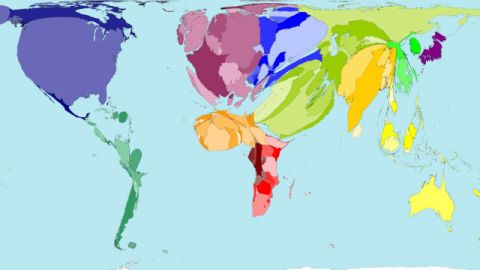The Brain Drain Game: Why Everybody Loses.
As the Brain Drain Race between wealthy nations heats up, emerging countries will continue to lose any chance at economic stability, while wealthy nations lose potential partners and markets in the global economy.

Sign up for the Smarter Faster newsletter
A weekly newsletter featuring the biggest ideas from the smartest people
What’s The Big Idea?
The issue of immigration sits on the fault lines of culture, politics, and economics, pushed to and fro by conflicting and often irreconcilable forces. At worst, national immigration policies lurch forward like Frankenstein’s monster, stitched together from random bits of idealism, compromise, belligerence, and denial. Even those that do a good job of serving national priorities today can miss the long-term economic picture entirely.
The Global Economic Picture: There’s a Brain Drain Race going on between the world’s economic leaders––a scramble to snap up the “best and the brightest” immigrants from poor and emerging nations. Some countries, like the UK, are busy implementing policies that better position them to win this race than others. Others, like the United States, continue to attract highly skilled* immigrants for the time being, while failing to adopt clever new policies to keep up with the competition. Economist Daniel Altman, a former economic advisor on immigration to the British government and author of Outrageous Fortunes: The Twelve Surprising Trends That Will Reshape the Global Economy, believes that this competition can be a
losing proposition for rich and poor countries alike.
losing proposition for rich and poor countries alike.
What’s the Significance?
For poorer countries, the consequences can be devastating: brain drain can permanently undermine their hopes for political stability and economic growth. The ongoing exodus of their most talented and educated citizens can prevent the growth of a stable middle class. Without this anchoring demographic, a nation is unlikely to develop the infrastructure it needs to compete (or even participate) in the global economy.
Why the Winners Lose, Too: World markets continue to integrate at a dizzying pace. For the leaders, emerging nations are potential partners in trade, consumers, and suppliers of key resources. Taking the example of theBRICs (Brazil, Russia, India, China), once-emerging nations can become powerful economic drivers themselves. In this new ecosystem, there is no such thing as isolationism – the fates of all nations are economically intertwined.
While international consensus – on anything – is devilishly difficult to achieve, Altman argues that leading nations need to take the long view in deciding immigration policy, rather than engaging in politically motivated internal squabbles or shortsighted international competition. He proposes some hybrid of open-door policies for needed workers and incentives for a significant percentage of those workers to contribute to their host countries by returning home. To be successful, such policies would have to be international in scope, mutually agreed upon and inviolable – otherwise the brain drain race would simply start all over again.
Altman’s Caveat to the Idea of “Smarter” Immigration Policies: We’re not that great at figuring out who is going to contribute most to our economies in the long term. It may be that, yes, you have a PhD today and you speak English really well and you’re going to make an immediate contribution to this economy. That is great, but what will your children and your children’s children do if indeed they stay in this economy? That is something that we’re not that great at forecasting. We had waves of very unskilled immigration all throughout the 20th century and at the time there was massive opposition to this immigration because these were unskilled people like the people who come in such great numbers from all around the world today, many of them illegally, to the country. The fact is that those people worked hard. They sent their kids to school. Those kids and their kids are some of the upright professionals in our society today. Would we have predicted that 50, 70 years ago? Not necessarily, so we have to be very careful when we say these are the cherries that we actually want to pick.
Weigh In! How can America Design a Smarter Immigration Policy? [Nota Bene:Big Think welcomes spirited debate, but racist and/or xenophobic comments will be removed].
–––––––––––––––––––––––––––––––––––––––––––––––––––––––––––––––––––––––––––––
*The UK changed the name of its “Highly Skilled Migrant Program” to the “Tier One Immigration Program.” There’s really no inoffensive way to say this, is there?
Sign up for the Smarter Faster newsletter
A weekly newsletter featuring the biggest ideas from the smartest people





